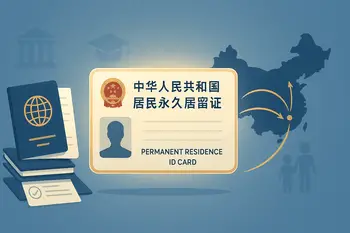
China’s complex financial landscape can be challenging for expats to navigate, particularly when it comes to understanding interest rates and their implications.
This comprehensive guide will help you make informed decisions about saving, borrowing, and investing in China.
Current Interest Rate Environment
As of March 2025, China’s key interest rates are:
- One-year loan prime rate (LPR): 3.45%
- Five-year LPR: 4.2%
- Average savings account rate: 0.25-0.35%
- Time deposit rates (1-year): 1.5-2.1%
Source: People’s Bank of China Official Statistics
Understanding China’s Banking System
Types of Banks and Their Offerings
1. State-owned Commercial Banks
- Industrial and Commercial Bank of China (ICBC)
- Bank of China (BOC)
- China Construction Bank (CCB)
- Agricultural Bank of China (ABC)
Typically offer the most comprehensive services for expats with English-language support.
2. Joint-stock Commercial Banks
- China Merchants Bank
- China CITIC Bank
Often provide more competitive rates but may have limited English services.
3. Foreign Banks
- HSBC
- Standard Chartered
- Citibank
Offer familiar banking experiences but may have higher minimum balance requirements.
Regional Variations in Interest Rates
Interest rates can vary significantly across regions:
Tier-1 Cities (Beijing, Shanghai, Shenzhen):
- Higher deposit rates (average 0.3-0.4%)
- More competitive lending rates
- Greater access to foreign currency accounts
Tier-2/3 Cities:
- Slightly lower deposit rates (average 0.2-0.3%)
- Less competitive lending rates
- Limited foreign currency services
Digital Banking and Fintech Solutions
1. Mobile Banking Apps
- WeChat Banking
- Alipay
- Local bank apps with English interfaces
2. Online-Only Products
- Yu’ebao (through Alipay): Average yield 2-2.5%
- WeChat’s LiCaiTong: Similar competitive rates
Source: China Banking News
Tax Implications for Expats
1. Chinese Tax Considerations
- Interest income is taxed at 20% for both residents and non-residents
- Automatic withholding by banks
Source: State Administration of Taxation
2. International Tax Implications
- Check your home country’s tax treaties with China
- Consider FATCA reporting requirements (for US citizens)
- Consult with international tax advisors like Deloitte China
Investment Options for Expats
1. Fixed Income Investments
- Government bonds (through qualified banks)
- Corporate bonds
- Certificate of deposits
2. Wealth Management Products
- Bank-issued products
- Fund-based investments
- Required documentation listed on SAFE website
Risk Management Strategies
1. Interest Rate Risk
- Diversify across different terms
- Consider dual-currency deposits
- Monitor PBOC policy changes
2. Currency Risk
- Use hedging tools available through international banks
- Consider multi-currency accounts
- Track exchange rates through apps like XE
Practical Steps for Banking in China
1. Opening Accounts
Required documents:
- Valid passport
- Work permit
- Residence permit
- Proof of address
2. Digital Banking Setup
- Download your bank’s app
- Register for WeChat Pay and Alipay
- Set up online banking access
Best Practices for Expats
1. Rate Comparison
- Use comparison sites like Rong360
- Check multiple banks’ offerings
- Consider both local and international banks
2. Documentation
- Keep records of all transactions
- Maintain proof of source of funds
- Save tax certificates
Resources and Tools
1. Official Sources
2. Expat Financial Services
3. Financial Planning Tools
- Wise for international transfers
- Money in China for rate comparisons
This guide is regularly updated to reflect the latest changes in China’s financial landscape.
For the most current rates and regulations, always verify with official sources and consult with financial professionals for personalized advice.


